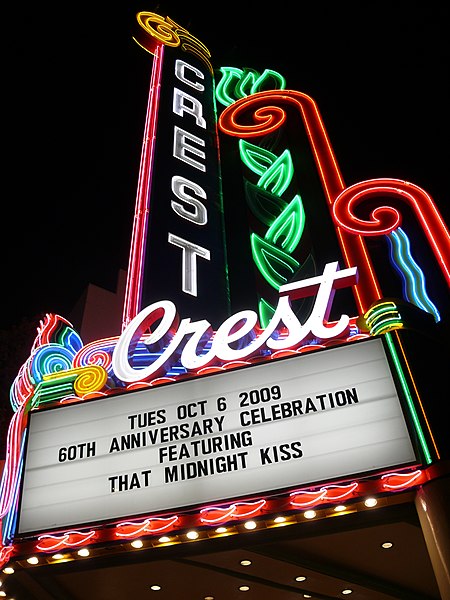
Avoiding spelling mistakes
Sixtieth/ sixteenth
When we use numbers in academic research projects and theses, it is especially important that we get them right. If we make mistakes with numbers, our research results can look different or confusing to readers. This will make us look less serious as researchers. In Thai English, we sometimes see a confusion between the words sixtieth and sixteenth, both of which are sometimes spelled wrong as sixteeth. If we pay attention to the details of these words, we may avoid this error.
When we write English words such as sixth, sixteenth, or sixtieth, clearly we are including numbers in a series, or a list of numbers one after the other. Part of the trouble may be that some written-out numbers just add the letters th to the English word, while others change it:
six sixth
sixteen sixteenth
sixty sixtieth
It might be easier if all words remained the same and could just add the letters th, but that it is not the way it is. It might help to remember that the wrong spelling sixteeth can be sidestepped if we keep in mind that the word teeth never appears in any of these numbers. The letters at the end of one of these words should be either teenth or tieth.
Could the choice of whether to write out words in letters or numerals be resolved by always using numerals, for example 6th, 16th, and 60th and never writing out numbers? Not really. Yet this would not solve the issue in many cases guides suggest that numbers from one through nine should be written out. TU students who are interested in automobiles will know that cars are often described in this way:
- Mazda 2 Sports Maxx AT
Specs: Four-cylinder 1.5-liter engine with four-speed automatic and five speed manual transmission, producing 103 horsepower.
- Kia Rio Hatchback
Specs: Four-cylinder 1.4-liter engine, producing 107 horsepower with a four-speed automatic transmission.
- Toyota Yaris RS
Specs: Four-cylinder 1.5- liter engine with four-speed automatic and five speed manual transmission, producing 109 maximum horsepower
- Citroen DS4 EGS6
Specs: Four-cylinder 1.6-liter engine with six-speed automatic transmission producing 115 horsepower.
- Honda Jazz SV
Specs: Four-cylinder 1.5-liter engine with four-speed automatic and five-speed manual transmission, producing 120 horsepower with five-speed automatic transmition.
- Ford Fiesta Sport Ultimate PowerShift (BK Pick!)
Specs: Four-cylinder 1.6 Liter engine with six-speed automatic and five-speed manual trasmission. Horsepower ranges from 109 to 121, for the Sport Ultimate PowerShift.
- Audi A1 S-Line
Specs: Four-cylinder 1.4-liter engine with six-speed automatic transmission producing 122 horsepower.
Note that in all of the above listings, numbers that are from one to nine are spelled out, whereas larger numbers and numbers that are fractions are written in numerals for extra clarity.

Whether larger numbers should be written out or expressed with numerals depends upon the style guide. Ajarns who are thesis supervisors will know what English language style guide applies for a thesis project. Websites of academic publications will recommend following a style guide for articles contributed to a publication. Usually, but not always, articles on business and technical subjects tend to feature numerals more than numbers written out in English.
One general rule to keep in mind is that if we use one form of writing out numbers, then we should continue to use it for the rest of a sentence. So if a sentence begins
- For her 6th, 16th, and 60th birthdays, Busarakham received a big red pillow in the shape of a heart as a present from her father Terdsak.
Note that since the first number mentioned in the sentence above uses a numeral, all of the numbers also use numerals. It would also be acceptable to write the same information as follows:
- For her sixth, sixteenth, and sixtieth birthdays, Busarakham received a big red pillow in the shape of a heart as a present from her father Terdsak.
Very often in academic research articles and theses, it is necessary to write numbers next to one another. For example,
- Samples were 24 20-year old undergraduate students at Thammasat University.
As we see, this can be confusing for the reader, since if we look quickly at the sentence, we are not sure if the author means to write the number 2420 or is referring to 24 people who are 20 years old. To solve this issue, we would write instead:
- Samples were twenty-four 20-year old undergraduate students at Thammasat University.
or
- Samples were 24 twenty-year old undergraduate students at Thammasat University.
or
- Samples were 24 undergraduate students at Thammasat University, all of them 20 years old.
In the fibal example above, we have solved the problem of potential confusion by separating the numbers in the sentence.
Another overall principle to think about is that if a number begins a sentence, it is usually worth rethinking the sentence to avoid having to start with a number. This is also mainly to make sure that the reader understands what we are trying to communicate. We never spell out the English words when we are referring to years. So we would write
1968 was considered by some observers to be the worst year in modern American history until 2016.
We would never write out the numbers in this way:
Nineteen sixty eight was considered by some observers to be the worst year in modern American history until 2016.
Our sentence as we have initially considered it may start with a number:
49,772 fans can be seated in Rajamangala National Stadium, the national stadium of Thailand and home stadium for the Thailand national football team, but 30,000 tickets were reportedly added to the confirmed 40,000 seats sold for the April 7, 2017 concert of the English group Coldplay at that venue.
The solution proposed by some style guides is to write out numbers when they start a sentence. As we have seen, this is not a good choice when a sentence begins with a year. It is also not appropriate when a sentence starts with a long number such as 49,772. This would look awkward so it would not be a good alternative:
Forty nine thousand, seven hundred and seventy two fans can be seated in Rajamangala National Stadium, the national stadium of Thailand and home stadium for the Thailand national football team, but 30,000 tickets were reportedly added to the confirmed 40,000 seats sold for the April 7, 2017 concert of the English group Coldplay at that venue.
As we can see, it would be difficult for the reader to figure out exactly what number we are referring to when we write out Forty nine thousand, seven hundred and seventy two. Instead, a better approach would be to rearrange the sentence to put the number somewhere else, instead of at the beginning. We might write:
Rajamangala National Stadium, the national stadium of Thailand and home stadium for the Thailand national football team, can seat 49,772 fans, but 30,000 tickets were reportedly added to the confirmed 40,000 seats sold for the April 7, 2017 concert of the English group Coldplay at that venue.
or
Paradoxically, 49,772 fans can be seated in Rajamangala National Stadium, the national stadium of Thailand and home stadium for the Thailand national football team, but 30,000 tickets were reportedly added to the confirmed 40,000 seats sold for the April 7, 2017 concert of the English group Coldplay at that venue.

(All images courtesy of Wikimedia Commons)
